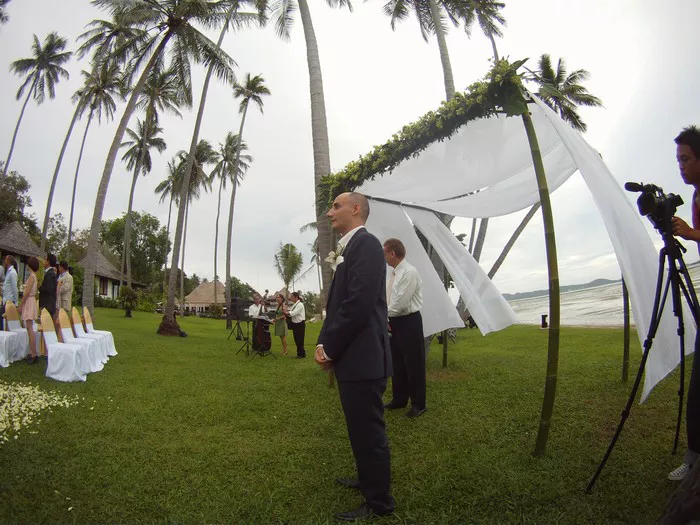Wedding insurance has transformed from a little-known product into a $500 million industry as couples grapple with increasing unpredictability in everything from weather patterns to global health concerns. The average policy now covers not just cancellations, but climate-related disruptions, vendor bankruptcies, and even “change of heart” protection—reflecting how thoroughly risk management has become integrated into wedding planning.
The numbers are staggering. Insurance provider WedSure reports a 700% increase in policies purchased since 2019, with particularly strong growth in climate-vulnerable areas. Couples planning outdoor weddings in California now routinely add wildfire smoke riders to their policies, while those in coastal regions invest in hurricane coverage. The most comprehensive “platinum” policies can exceed $5,000 but cover nearly every conceivable disaster—including military deployment and sudden venue condemnation.
“Modern couples face risks previous generations didn’t contemplate,” explains insurance analyst Megan Cho. “A 100-year flood might now happen every decade. A beloved venue could shutter overnight due to economic conditions. Wedding insurance has become as essential as venue deposits.”
The products have become remarkably sophisticated. Some insurers use AI to analyze historical weather data when pricing outdoor ceremony coverage. Others offer “stress relief” benefits that cover last-minute therapist sessions or spa treatments if planning becomes overwhelming. The pandemic’s lasting impact is evident in policies that now include communicable disease clauses—though these remain controversial and expensive.
Vendors throughout the wedding industry are adapting to this insured reality. Caterers and florists report an increase in last-minute changes as couples exercise their policy benefits. Some venues have begun offering insurance-backed “weather guarantee” packages that promise seamless indoor alternatives if needed.
Perhaps most surprisingly, wedding insurance is changing how couples plan. With financial protection in place, some are making bolder choices—booking dream venues they might have considered too risky, or planning elaborate outdoor ceremonies even during transitional seasons. The psychological impact is significant: “Knowing we’re covered lets us focus on enjoying the process rather than worrying,” shares recent bride Alicia Yang.
As climate change accelerates and global uncertainty persists, wedding insurance appears destined to become as standard as marriage licenses—a financial safeguard for love in turbulent times. The industry’s growth reflects a profound cultural shift: modern couples recognize that while their commitment may be forever, their wedding plans need contingency options.


